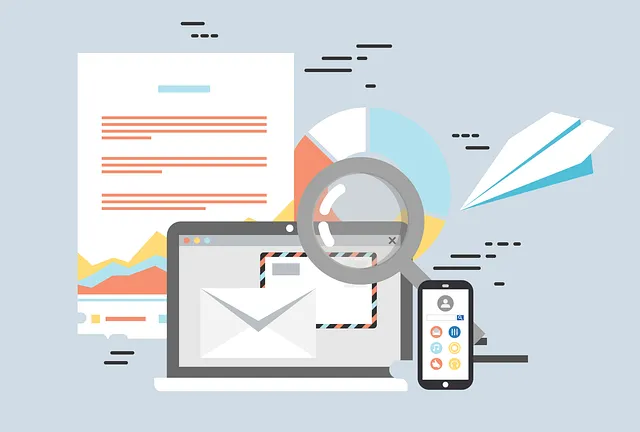As the retail industry evolves, so do the demands of consumers and the challenges businesses face. But, with challenges come opportunities. The right software tools can streamline operations and propel a retail business into the limelight of market dominance. Let’s explore the software arsenal redefining the retail landscape.
Retail Revolution: Software Solutions Paving the Way
The retail sector encompasses a myriad of intricate processes that, when optimized, can enhance a business’s bottom line. These solutions promote efficiency and also forge stronger customer relationships.
● Revolutionary Point of Sale (POS) Systems
Today’s POS systems are multifaceted, offering retailers a plethora of functionalities that go well beyond simple transaction processing. Unlike traditional cash registers, modern systems integrate with CRM, e-commerce, and inventory management solutions, forming a cohesive ecosystem. This ecosystem captures a wealth of data, which, when analyzed, can illuminate peak sales periods, best-selling products, and customer purchase habits. With this knowledge, retailers refine their promotional strategies, optimize stock levels, and enhance store layouts.
● Proactive Inventory Management Software
Retail business demands accuracy in inventory management. Relying on manual checks and gut feelings can lead to stockouts, overstock situations, or even wastage. Contemporary inventory management software uses AI and ML, to
- predict when certain items will run low
- suggest optimal restock quantities
- integrate with suppliers for automatic order placements.
The outcome? Shelves that are always stocked just right and warehouses that utilize space judiciously.
● Tailored Customer Relationship Management (CRM) Software
Modern CRM systems offer an in-depth look into customer preferences, shopping habits, and even feedback. Retailers turn to custom-built retail software development that further helps them craft personalized marketing campaigns and loyalty programs. For instance, if a customer frequently buys eco-friendly products, the CRM could trigger a personalized discount for a new eco-friendly product range. The result is a shopping experience that feels personal and attentive.
● Omni-channel E-commerce Platforms
The lines between online and offline shopping have blurred. Consumers might browse products online and choose to pick them up in-store. E-commerce platforms cater to this hybrid shopping behavior. They provide responsive online storefronts for mobile and desktop users while ensuring in-store inventory levels are accurately reflected online. Thus, a customer can easily reserve an item online and try it in the store.
● Strategic Supply Chain Management Software
In an era of globalization, products might pass through multiple countries before reaching the retail shelf. This journey demands impeccable coordination and oversight. Supply chain management software offers a bird’s-eye view of the entire product journey, from raw material sourcing to in-store stocking. Retailers can quickly identify bottlenecks, negotiate better rates with suppliers, or even make sustainable sourcing decisions.
● Automated Employee Scheduling Software
Managing a diverse workforce, with varied skill sets and availability, is no small feat. Modern scheduling tools take into account employee preferences, store traffic predictions, and local labor laws to generate schedules. This boosts employee morale and ensures that the store is always adequately staffed. Plus, integrated time-tracking and payroll functionalities reduce administrative overheads.
● Insightful Data Analytics Platforms
Retailers sit on a goldmine of data — sales figures, customer reviews, online traffic, and more. Data analytics platforms sift through this raw data, identifying patterns and trends. Retailers can then make informed decisions, such as launching a product line that resonates with customer preferences or refining store layouts to enhance flow and sales.
● Multi-Channel Marketing Automation Software
A consumer’s journey is fragmented across emails, social media, online ads, and physical stores. Multi-channel marketing tools ensure that the brand messaging remains consistent across all these touchpoints. Automating campaigns also allows for A/B testing. Those help retailers fine-tune their messaging for maximum impact.
● Comprehensive Financial Management Software
Retail finance is intricate. Daily sales, supplier invoices, payroll, and tax implications need meticulous management. Modern financial software seamlessly integrates with POS systems, e-commerce platforms, and even banking solutions. Retailers can quickly generate P&L statements, forecast cash flows, or assess the financial viability of a new store location.
● Innovative Loss Prevention Software
Retail shrinkage, be it from theft, fraud, or administrative errors, can erode profitability. Loss prevention software integrates with surveillance systems, POS terminals, and even employee activity logs to flag suspicious activities. Machine learning algorithms “learn” from past incidents, continuously refining their monitoring for enhanced security.
***
As the retail sector plunges deeper into the digital age, staying abreast of the latest software solutions is a lifeline. The intricate dance of customer preferences and operational efficiency hinges on the robustness of the technological backbone. So make the move and let tech be your compass!
